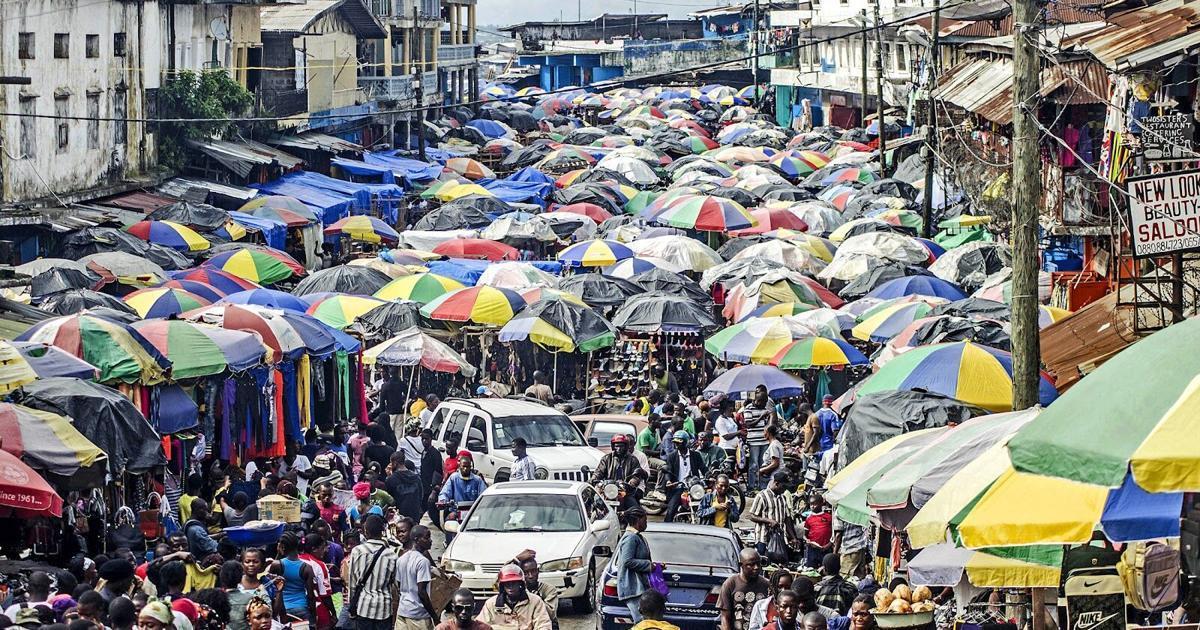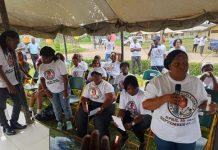Africa-Press – Liberia. The World Bank’s March 2025 Liberia Country Economic Memorandum presents a comprehensive assessment of Liberia’s economic trajectory and proposes key policy recommendations for achieving sustained and inclusive growth.
The report rightly emphasizes macroeconomic stability, private sector development, agricultural transformation, and trade liberalization as pivotal drivers of Liberia’s economic progress.
However, while the analysis offers valuable insights, it also exhibits significant limitations, particularly in its over-reliance on foreign direct investment (FDI), a narrow focus on agricultural industrialization, and an underestimation of governance challenges.
This critique aims to provide a balanced perspective by highlighting the report’s strengths, addressing its shortcomings, and proposing alternative strategies for Liberia’s sustainable development.
Key Strengths of the Report
1. Macroeconomic Stability and Fiscal Sustainability
The report accurately stresses the need for improved revenue mobilization and fiscal discipline to ensure macroeconomic stability. Liberia has historically struggled with fiscal imbalances and external debt vulnerabilities. The recommendation to implement a value-added tax (VAT) and rationalize tax expenditures is sound, as these measures could significantly enhance domestic revenue generation. The emphasis on public investment efficiency is also commendable, as effective allocation of public funds will be crucial for long-term economic resilience.
2. Private Sector Growth and Business Climate Reform
A conducive business environment is essential for economic expansion. The report correctly identifies challenges such as bureaucratic inefficiencies, weak legal frameworks, and limited access to finance, which deter private sector investment. By streamlining regulatory processes and strengthening property rights, Liberia can create a more favorable climate for business growth, particularly for small and medium-sized enterprises (SMEs), which are critical to employment generation and economic diversification.
3. Agricultural Transformation and Agro-Processing
Liberia’s comparative advantage in agriculture is well acknowledged in the report. The focus on enhancing value chains for palm oil, cocoa, rubber, cassava, and rice is appropriate, as it presents an opportunity for increased exports and job creation. The expansion of agro-processing industries would help shift Liberia from a raw commodity exporter to a producer of higher-value goods, thereby increasing its global competitiveness.
4. Trade Liberalization and Regional Integration
The report’s emphasis on trade facilitation and regional integration aligns with Liberia’s commitments under ECOWAS and the African Continental Free Trade Area (AfCFTA). Expanding market access and reducing trade barriers will help Liberian businesses integrate into regional and global value chains. The proposal to modernize Liberia’s trade infrastructure and improve customs procedures is crucial for boosting exports and attracting foreign investment.
Key Weaknesses and Alternative Policy Recommendations
1. Over-Reliance on Foreign Direct Investment (FDI)
While FDI is an important driver of economic growth, Liberia should not depend excessively on foreign capital inflows, as they are often volatile and concentrated in extractive industries with limited spillover effects. A more balanced approach should include:
Strengthening domestic capital formation through the establishment of a national development bank to finance key sectors.
Encouraging pension fund investments in infrastructure and productive enterprises.
Enhancing microfinance and cooperative credit unions to improve financial inclusion.
2. Narrow Focus on Agricultural Industrialization
While the report’s emphasis on agro-processing is valid, Liberia’s industrialization strategy should extend beyond agriculture to include:
Light manufacturing sectors, such as textiles, furniture, and construction materials.
Special Economic Zones (SEZs) to attract investment in non-agricultural industries. Investment in digital infrastructure and technology hubs to position Liberia as a future player in the knowledge economy.
3.Underestimation of Governance Challenges
The report assumes that governance reforms can be swiftly implemented, which overlooks Liberia’s deep-seated institutional weaknesses. A more realistic approach should include:
Strengthening citizen oversight mechanisms to promote transparency and accountability.
Enhancing judicial independence to ensure that anti-corruption laws are enforced without political interference.
Leveraging technology (e.g., blockchain) in public procurement to reduce corruption and increase efficiency.
4. Addressing Illicit Financial Flows for Increased Domestic Revenue
One of the most significant constraints on Liberia’s ability to mobilize resources for development financing and support local businesses is the prevalence of illicit financial flows (IFFs). These include tax evasion, trade mis-invoicing, and capital flight, which drain substantial revenue from the economy. The government should:
Strengthen financial intelligence and enforcement mechanisms to track and combat illicit flows.
Enhance tax compliance and expand the tax base by formalizing more businesses and improving revenue collection systems.
Adopt stricter anti-money laundering measures in alignment with international best practices.
Implement trade transparency policies to reduce mis-invoicing and revenue leakages in the export sector. By curbing IFFs, Liberia can significantly increase its domestic revenue, enabling greater resource mobilization for critical infrastructure, social services, and private sector development.
Conclusion: A Call for a More Holistic Economic Strategy
Liberia stands at a critical juncture, and while the World Bank’s March 2025 Report offers valuable guidance, it falls short of presenting a holistic economic strategy. Achieving sustainable and inclusive growth requires a diversified industrialization approach that extends beyond agriculture, a robust domestic capital mobilization strategy that reduces dependency on volatile FDI, and a pragmatic governance reform agenda that acknowledges the complexities of Liberia’s institutional landscape.
Policymakers should prioritize:
Enhancing domestic investment mechanisms to finance key industries and infrastructure.
Expanding Liberia’s industrial base beyond agriculture to create more employment opportunities.
Implementing gradual and systemic governance reforms with strong enforcement mechanisms.
Tackling illicit financial flows to unlock significant domestic revenue potential for development financing.
Leveraging technology and regional integration to drive economic resilience and competitiveness.
If Liberia is to transition from economic stagnation to sustained prosperity, a bold, pragmatic, and multi-sectoral approach is required. The government, private sector, and international partners must collaborate to implement a strategic economic vision that ensures long-term stability, growth, and shared prosperity for all Liberians.
Source: Liberianobserver
For More News And Analysis About Liberia Follow Africa-Press






